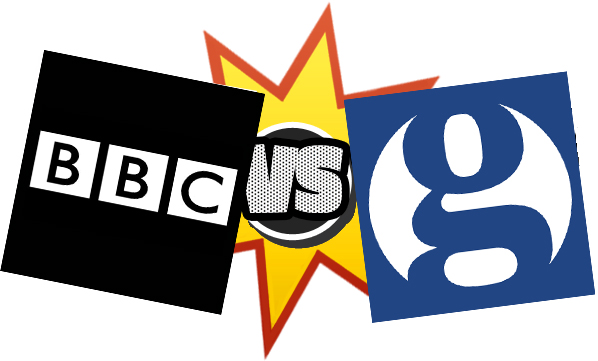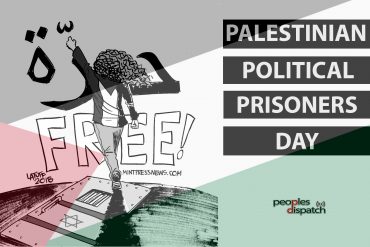Cross posted from the blog of CAMERA
Earlier this month, CAMERA’s BBC Watch and UK Media Watch ran interesting pieces discussing mistranslations by the BBC and The Guardian, respectively.
It’s worth comparing those two posts looking way the British news organizations handled complaints about their mistranslations, in part because The Guardian, which is generally one of the more anti-Israel English-language newspapers around, in this case bested the BBC when it came to grasping the importance of precise translations and of correcting errors.
Guardian
The Guardian initially claimed in an editorial that
In a small but perhaps encouraging sign, President Rouhani, in his statement welcoming the deal, referred to Israel by its name, rather than as “the Zionist entity”.
After UK Media Watch informed the Guardian that this was not true, the newspaper quickly and commendably fixed its mistake and published a correction explaining that
This article was amended on 15 July 2015. An earlier version said President Rouhani, in his statement welcoming the deal, referred to Israel by its name, rather than as “the Zionist entity.” In fact he did not refer to Israel by its name, but as “the Zionist usurper regime.”
BBC
Like the Guardian, the BBC also plugged the word “Israel” into a translation of a statement that didn’t actually include the word. Likewise, what was actually said was telling.
As reported in Britain’s The Jewish Chronicle,
A BBC documentary has substituted the word “Israelis” for “Jews” in its translation of interviews with Palestinians, its maker has admitted.
Lyse Doucet has stood by the decision to translate “yahud” as “Israeli” in subtitles on her hour-long documentary Children of the Gaza War, which airs on BBC Two tonight.
The correct translation for “yahud” from Arabic to English is “Jew.”
The BBC’s chief international correspondent said that Gazan translators had advised her that Palestinian children interviewed on the programme who refer to “the Jews” actually meant Israelis.
In one instance, a Gazan child says the “yahud” are massacring Palestinians. However the subtitles read: “Israel is massacring us.”
Canada-born Ms Doucet said: “We talked to people in Gaza, we talked to translators. When [the children] say ‘Jews,’ they mean ‘Israelis.’
BBC Watch explained that this was not the first time the media giant replaced Palestinian “Jews” with “Israelis,” and recounted that, after a complaint about the switch, the BBC Trust’s Editorial Standards Committee in 2013 did not correct the mistranslation, and in fact went so far as to justify the practice, saying that “Israel” is what the speaker was “most likely referring to.”
Let’s assume the very best case: That the Palestinians who said “yahud” really did mean Israelis, notwithstanding the many examples of straightforwardly, explicitly anti-Jewish rhetoric in Palestinian society and the wider Arab world.
Even in this case, words matter. (Look again at the idea behind The Guardian‘s erroneous claim: “In a small but perhaps encouraging sign, President Rouhani…referred to Israel by its name, rather than as ‘the Zionist entity.'” Words matter.)
If its true that Palestinian children conflate “the Jews” and “Israel” in their language, this matters — and news consumers seeking to understand the Arab-Israeli conflict should know about it. If Palestinian parents and educators generally don’t teach that “Jew” means something broader than “Israeli,” then again, this matters, and BBC viewers should understand this reality.
And the truth is, reporters don’t generally assume the very best case. When an Israeli rabbi used terribly ugly language in reference to “the Arabs,” the BBC (and others) didn’t look into the rabbi’s mind, determine what he “most likely” meant, and tell readers that he was slurring “terrorists,” which is what the rabbi later insisted he was speaking about. Or to take a more recent example, the BBC (and others) has no problem referring to Donald Trump’s “disparaging remarks made about Mexicans” — not about Mexican immigrants, which is who he was referring to, or “bad” Mexican immigrants, which one might argue is what he meant. Trump’s comments are controversial because what people say, the form their words take, and the potential effect of the words on those listening, are thought to matter.
At least in this case, the Guardian understood that, and the BBC did not.





